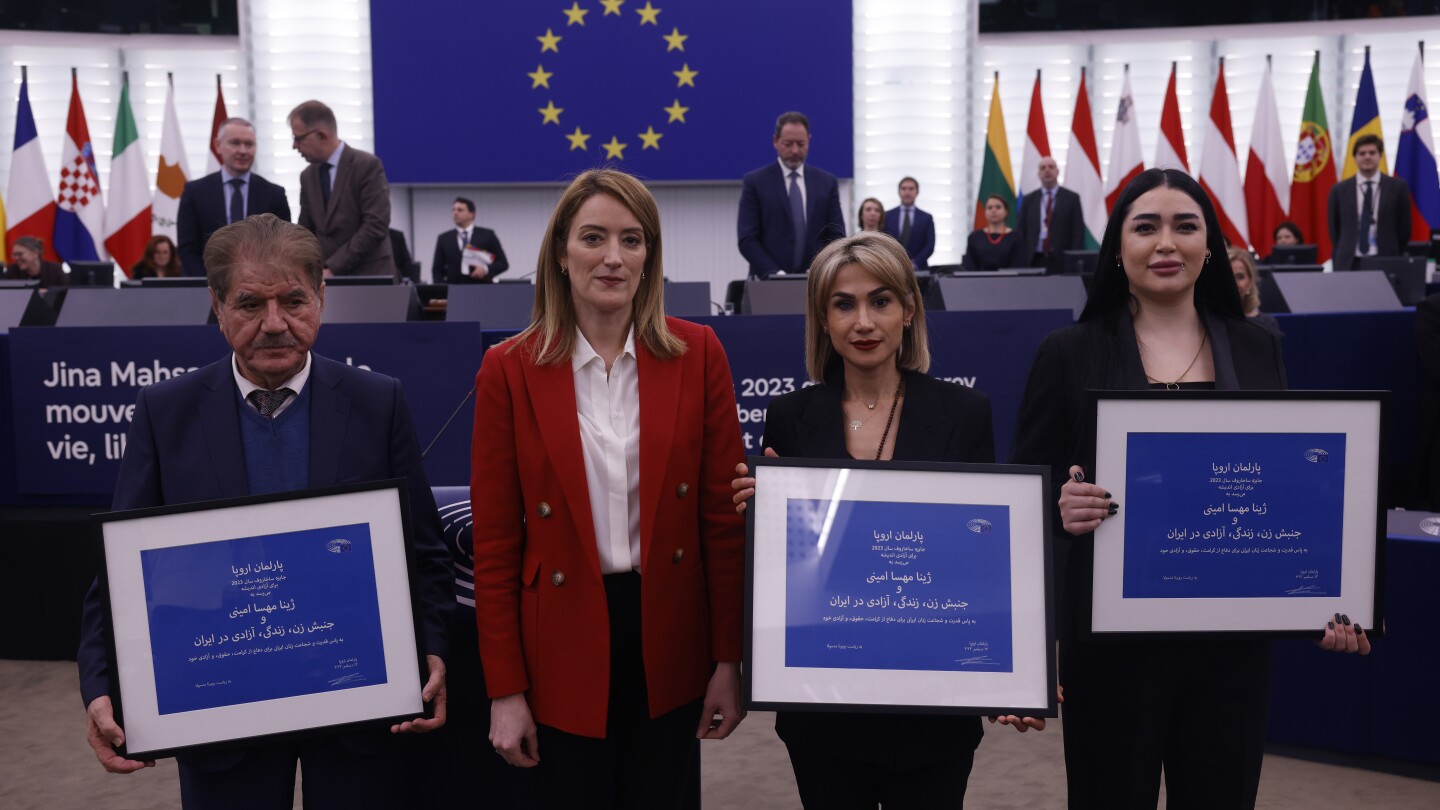BRUSSELS (AP) — The European Parliament on Tuesday remembered a young woman who died in police custody in Iran last year, during a ceremony at which she and a Iranian human rights group were officially awarded the EU’s top human rights prize.
Parliament President Roberta Metsola deplored that even part of Mahsa Amini’s family was not allowed to attend the event for the awarding of the Sakharov Prize at the EU legislature’s plenary.
“They are under a travel ban imposed by the Iranian regime. Their treatment is another example of what the people of Iran face every day,” Metsola said.
Amini, 22, died in September 2022, three days after she was arrested by Iran’s morality police for allegedly violating Iran’s mandatory headscarf law. While authorities said she suffered a heart attack, Amini’s supporters said she was beaten by police and died as a result of her injuries.
The EU said her death triggered a women-led movement in Iran, and representatives of the Woman, Life, Freedom movement in Iran were in Strasbourg, France, to attend the solemn ceremony.
The 27-nation EU has imposed sanctions on Iranian officials and organizations — including ministers, military officers and Iran’s morality police — for human rights abuses over the protests.
“This year’s Sakharov Prize serves as a tribute to all the brave and defiant women, men and young people in Iran who, despite coming under increasing pressure, are continue the push for change,” Metsola said.
Amini’s death triggered protests that spread across the country and rapidly escalated into calls for the overthrow of Iran’s four-decade-old Islamic theocracy.
Authorities responded with a violent crackdown in which more than 500 people were killed and over 22,000 others were detained, according to rights groups. The demonstrations largely died down early this year, but there are still widespread signs of discontent. For several months, women could be seen openly flaunting the headscarf rule in Tehran and other cities, prompting a renewed crackdown over the summer.
The EU award, named for Soviet dissident Andrei Sakharov, was created in 1988 to honor individuals or groups who defend human rights and fundamental freedoms. Sakharov, a Nobel Peace Prize laureate, died in 1989.

